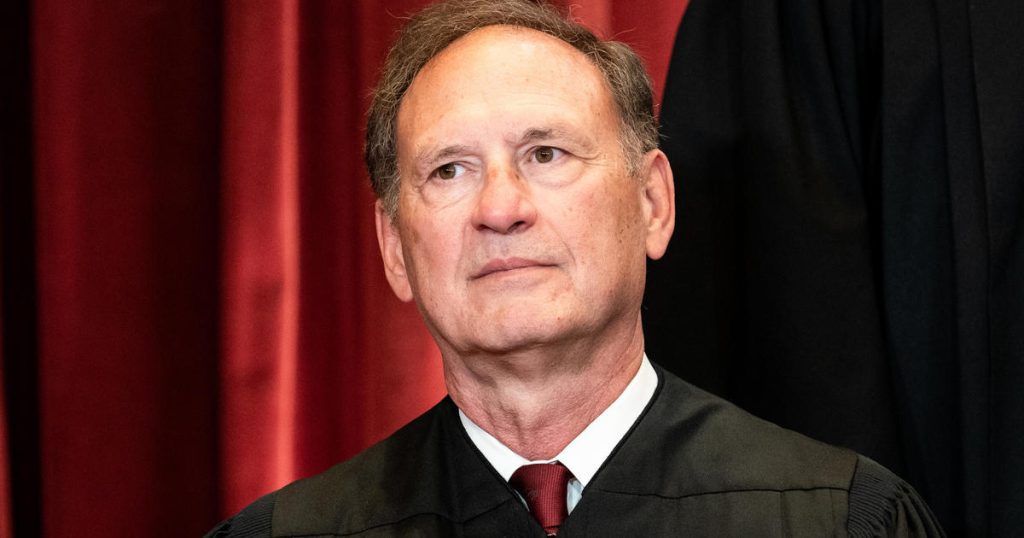The flying of two different flags outside of Justice Samuel Alito’s homes has sparked controversy and calls for the adoption of a binding code of conduct at the Supreme Court. The reports of an upside-down American flag and an “Appeal to Heaven” flag led to concerns about ethics practices, particularly as the flags were associated with the Jan. 6 Capitol attack. Alito denied involvement in flying the flags, attributing the display of the flags to his wife’s response to offensive signage from a neighbor.
The upside-down American flag and the “Appeal to Heaven” flag have historical significance, with the former symbolizing distress and the latter dating back to the American Revolution. These flags were carried by rioters during the Capitol attack, leading to heightened scrutiny of their display outside of Alito’s homes. Democrats have called for Alito’s recusal from cases involving the Capitol attack and former President Donald Trump, citing concerns about political bias and the appearance of impropriety.
Senate Judiciary Committee Chairman Dick Durbin criticized Alito and called for his recusal from certain cases, arguing that the justice’s integrity could be compromised by his association with political symbols. Democrats are pushing for legislation that would require the Supreme Court to adopt a binding code of conduct and handle claims of judicial misconduct more effectively. The Supreme Court issued a code of conduct in November, but it lacks an enforcement mechanism.
As the Supreme Court prepares to release decisions on politically charged cases, the controversy surrounding the flags flown at Alito’s homes adds another layer of complexity. The rulings in cases related to the Capitol attack and Trump’s immunity could have significant implications for the former president. Alito’s potential involvement in these cases raises questions about his impartiality and whether he should recuse himself to avoid any appearance of bias.
While Republicans have largely defended Alito, some have questioned the judgment in displaying flags with political meanings. The Supreme Court’s decisions in these cases could impact the legal standing of individuals involved in the Capitol attack and Trump’s immunity from prosecution. The justices are in the process of finalizing their opinions, which will be announced in the coming weeks, potentially influencing the legal landscape in the United States.
It remains to be seen whether Alito will recuse himself from the cases involving Trump and the Capitol attack. If he chooses not to recuse himself and the decisions are made by a 5-4 vote with his participation, the court could deadlock, leading to lower court rulings standing. Alito may provide an explanation for his decision not to recuse himself, as he did in a previous tax case. The controversy surrounding the flags flown at his homes has renewed focus on ethics practices at the Supreme Court and has prompted discussions about the need for a binding code of conduct.


